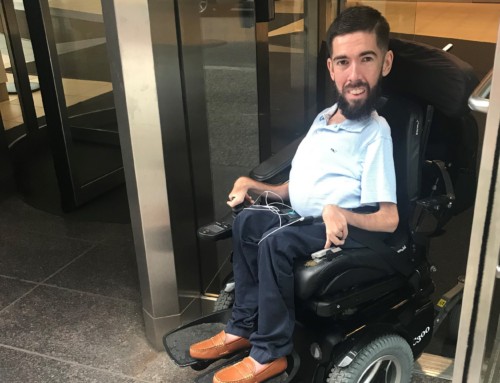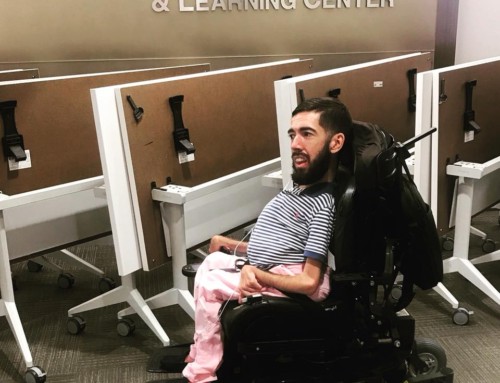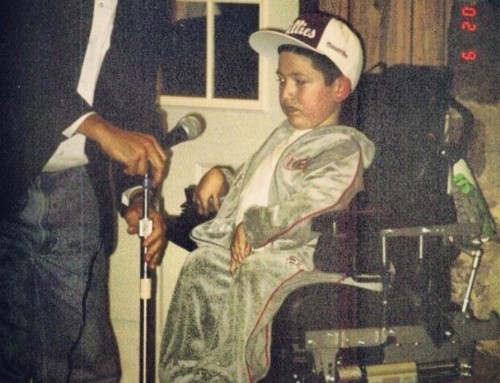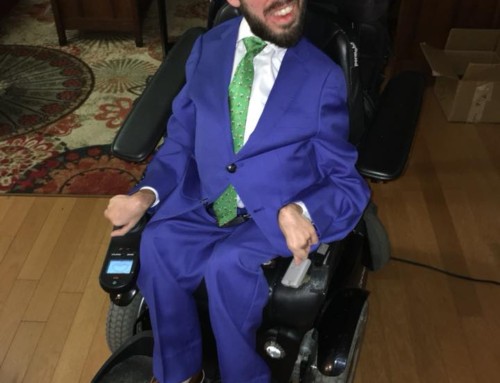I’m not as much of a skeptic as our president to say that I thought the first articles I read about Spinraza were “fake news”, but I certainly took what I read with a grain of salt. The articles I came across didn’t speak much to the impact of the drug, only that it was a treatment for SMA. The individuals included in the studies I heard about were babies. So, I thought, what can a baby really do to show its strength in the first place? On top of all that, the drug was brand new. While I’m usually an early adopter of the newest in fashion or technology, I’m never in a rush to be a lab rat for some scientist’s latest invention.
Nevertheless, like I said in my previous post, I was interested. This wasn’t one of the many clinical trials I was asked to be a part of as a kid, and it wasn’t some drug created for some other disorder that had unintended, marginal benefits for people with SMA. I tried taking albuterol in the past to help with fatigue, but that just made me feel like I was on speed. Instead, I still battle with the fact I just shouldn’t stay out all hours of the night with my friends, but that’s neither here nor there. The news claimed Spinraza was the real deal, so despite the price and whatever insurers had to say about it, I got an appointment at University of Pennsylvania to learn more.
When I showed up to my appointment, the doctor probably thought she saw a ghost. For someone with a chronic medical condition, I rarely, and by rarely I mean never, go to the doctor. My pulmonary doctor and neurologist have always recommended I see them each once a year so they can perform a bunch of tests and monitor my “progress”, but without a treatment I didn’t see the point. Who the f*^% wants to go to the doctor just to be told, “This is how much you died this year…”
As always, though, the doctor had good intentions. At my appointment, she shared that she strongly believes in the medicine and the research. She also said she believes it’d be effective for all types of SMA. Coverage would also not be an issue. This was good to hear, but was never a true concern. A little insurance policy never stopped me from getting what I needed in the past. Thankfully, though, Biogen, the manufacturer of the drug, agrees to cover the drug for those denied by insurance.
There is one complication to work around, though. The drug is administered by spinal injection, and I have a metal bar in my back that was surgically inserted as a kid to prevent further scoliosis. This is common for people with SMA. Unfortunately, the bar in my back is blocking the usual area for the medicine to be injected. So, the doctor let me know the hospital is exploring other ways to administer the drug that should be effective as well. I just recently had a CT scan of my back done so the doctor can evaluate my options. I’m now waiting for word from the doctor.
In the meantime, the potential benefits of Spinraza have become more real to me. Just the other day, I saw a post on Facebook about a young man who has actually gained back some strength thanks to Spinraza. It made me smile that the young man (pictured above) was photographed in a [dis]ABLE shirt. Aside from that post, I regularly see posts on social media, mostly of little kids, who are receiving the treatment. It’s less complicated for them to receive treatment because many of them don’t have the bar in their back yet. In the end, I’m sure the bar in my back will prove to be only a minor hurdle, and the people at Penn will figure it out. It’s only a matter of time, and I’m in no rush. Never in my life did I even dream this would be a possibility…
![[dis]ABLE Logo](https://disablethebrand.com/wp-content/uploads/2014/05/jimmy-logo-1-200.jpg)





